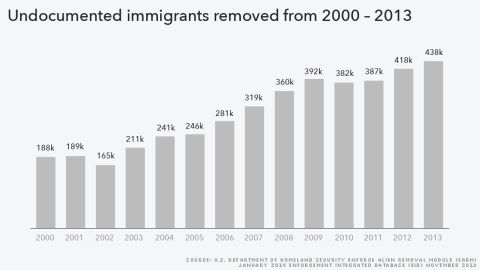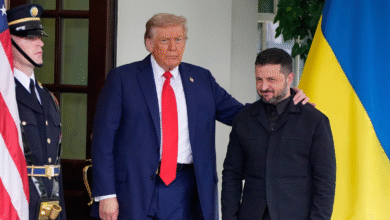Trump Administration Deportation Violation Sparks Legal Ruling

The Trump administration deportation violation has sparked significant controversy following a federal judge’s ruling concerning a deportation flight to South Sudan. On May 21, 2025, the court found that the administration disregarded a court order that prevented deporting individuals to third countries without allowing them to voice their fears of persecution. Judge Brian Murphy’s decision arose after eight migrants with criminal backgrounds were deported, which raised serious concerns about their safety and the legality of the deportation process. South Sudan’s complex and dangerous conditions, as highlighted by a U.S. State Department travel advisory, further complicate these cases and illuminate the humanitarian implications of these actions. This ruling underscores the ongoing struggles within the U.S. immigration system, particularly regarding the treatment of vulnerable individuals detained in ICE custody and facing deportation to tumultuous regions.
Recent legal developments reveal how the Trump administration’s approach to immigration has been increasingly scrutinized, especially regarding deportation flights associated with unstable nations like South Sudan. District Court Judge Brian Murphy identified an egregious breach of a previous legal injunction that was intended to protect deportees from being sent to nations where they might face persecution. The ruling raises alarm about the procedural justice pertaining to immigration judge rulings and the obligations of federal authorities when handling cases of individuals from countries experiencing conflict or crisis. With ongoing violence in South Sudan and reports of hazardous conditions, this incident illustrates the urgent need for reevaluation of deportation practices under the current immigration enforcement framework. As legal battles unfold, the implications for both the deported individuals and the broader immigration policy remain critical.
Trump Administration’s Deportation Violation: A Judicial Perspective
In a pivotal ruling, a federal judge determined that the Trump administration breached a court order regarding deportation procedures. Judge Brian Murphy articulated that the administration’s actions dismissed the stipulations of his earlier injunction which aimed to protect migrants from being sent to countries where they could face persecution without an opportunity to voice their fears. This violation has raised serious concerns about the legality of the deportation processes utilized by the administration, particularly as it relates to vulnerable populations from South Sudan and other regions.
The ruling underscores the complexities involved in deportations, especially when agencies like Immigration and Customs Enforcement (ICE) do not provide adequate time for migrants to engage in legal representation or contact family members prior to their deportation flights. As noted in this case, the deportation of migrants to South Sudan, where conditions are perilous due to ongoing conflict, exemplifies a troubling practice that could expose these individuals to further violence and hardship.
The Legal Implications of the Immigration Judge’s Ruling
Judge Murphy’s ruling not only signifies a triumph for due process but also spots a glaring flaw in how deportations are conducted under ICE’s purview. By highlighting the illegality of sending people back to countries stricken by violence and instability, the ruling serves as a powerful reminder of the responsibilities held by immigration authorities to adhere to court mandates. This case illustrates the critical role that immigration judges play in ensuring that individuals have the opportunity to contest their deportation based upon legitimate fears of persecution.
Moreover, this decision fuels ongoing debates surrounding the judicial branch’s ability to check the executive branch’s authority in immigration matters. As the Trump administration faced increasing scrutiny over its deportation policies, legal rulings such as Murphy’s challenge the narrative that legality and executive discretion in deportation matters are unassailable, especially when public safety and human rights are at stake.
South Sudan’s Deteriorating Conditions and Deportation Concerns
The current conditions in South Sudan are dire, exacerbated by years of civil war and violence, warranting serious reflection on the implications of deporting individuals to such environments. Multiple reports from human rights organizations illustrate that returning migrants face a high risk of violent reprisals, especially those with criminal backgrounds. As Judge Murphy pointed out, deporting individuals to South Sudan without considering the prevailing conditions violates the very tenets of justice and human rights.
The State Department has issued travel advisories warning against travel to South Sudan due to rampant crime and the likelihood of being caught in armed conflict. This context raises ethical questions about the Trump administration’s deportation flights and the motivations behind sending individuals back to such hazardous situations. The lack of an adequate opportunity for legal recourse only compounds the concerns surrounding these deportations, igniting discussions about necessary reforms in immigration policy.
Impact of Deportation Flights on Families and Communities
The implications of deportation flights extend beyond the individuals directly affected; they reverberate through families and communities left behind. When migrants are deported, often without warning, the impact on their families can be catastrophic. Families are left in distress, grappling with uncertainty about the deportees’ safety and well-being, as well as the emotional and financial repercussions of losing a family member who may have been a crucial support system.
Additionally, communities may face increased challenges when members are deported to countries experiencing conflict such as South Sudan. This scenario can result in social fragmentation and strain on local resources as families and communities around the migrants strive to navigate the gaps left by sudden absences. The legal decisions surrounding deportations thus resonate on a broader scale, necessitating an examination of how policy decisions affect social fabric and stability.
ICE Custody and the Process of Deportation
The process by which individuals are detained in ICE custody and then deported raises significant legal and ethical questions about due process. The abrupt nature of the deportation flights, as indicated in Judge Murphy’s findings, exemplifies it may deprive individuals of their rights to proper legal representation and communication with loved ones. The implications of these practices prompt necessary discussions regarding the reform and transparency needed within the immigration enforcement system.
Furthermore, the detention of migrants in ICE custody, particularly in cases linked to serious criminal charges, complicates public perception and judicial perceptions. While there may be valid concerns regarding public safety, it is critical to ensure that the judicial and immigration processes operate within the frameworks of the law. Judge Murphy’s ruling serves as a vital call to action to reassess deportation practices, reform policies, and uphold the rights of those facing removal.
The Role of the Department of Homeland Security in Deportation Flights
The Department of Homeland Security (DHS) plays a pivotal role in managing deportation flights, wielding substantial influence over the operational procedures surrounding these removals. In light of the recent ruling by Judge Murphy, the DHS is prompted to reexamine its methodologies for assessing deportees’ eligibility for repatriation, particularly to volatile regions like South Sudan. The consequences of inadequately reviewing these aspects not only undermine the integrity of immigrant protections but also potentially place lives at risk.
Moreover, the DHS must ensure that its policies align with legal rulings and human rights considerations. The criticism aimed at the department following the ruling highlights the urgent need for accountability and reform in how deportation decisions are made and executed. Such measures should enhance transparency while safeguarding against actions that violate the rights of individuals within the U.S. immigration system.
Growing Concerns Over Human Rights Violations in Deportation Practices
The recent court decision emphasizing the Trump administration’s violation of deportation protocols shines a spotlight on ongoing human rights violations associated with current deportation practices. The hurried deportation of individuals to places like South Sudan raises significant concerns about their safety and well-being, especially in light of the country’s tumultuous political landscape. Critics argue that such practices can constitute a clear disregard for the fundamental principles of human rights, leading to disastrous outcomes for deported individuals.
Highlighting human rights concerns within deportation practices calls for an urgent reevaluation of existing laws and protocols governing immigration enforcement. Legal professionals and human rights advocates are increasingly advocating for reform to ensure that the rights of all individuals, particularly the most vulnerable populations, are respected and protected in accordance with international human rights standards.
The Consequences of Violations of Court Orders on Immigration Policy
Violations of court orders by executive branches regarding deportation policies have significant ramifications not only for individuals affected but also for the integrity of immigration policy as a whole. The Trump administration’s actions, as highlighted in the ruling by Judge Murphy, serve to undermine public trust in the immigration system, emphasizing the need for strict adherence to legal obligations. This breach of protocol may lead to increased litigation and challenges to deportation proceedings, further complicating an already strained immigration system.
Moreover, judges taking a stand against such violations signal a critical checks-and-balances approach within the legal system, promoting accountability among governmental actors. Ongoing cases involve potential repercussions for future immigration policies, suggesting that adherence to judicial decisions is paramount in maintaining a functional and just immigration framework.
Exploring Alternative Solutions to Deportation
The ruling against the Trump administration’s deportation flights opens the door for exploration of alternative solutions to the deportation system. Such options may include comprehensive immigration reform that prioritizes the well-being of individuals and communities rather than punitive deportation action. Considering humanitarian options that provide temporary protective status for migrants fleeing dangerous conditions, such as those in South Sudan, could reshape the narrative around immigration in a more compassionate manner.
Moreover, fostering legal pathways for those at risk of deportation would align with global human rights obligations and could mitigate the need for drastic measures. Expanding options for asylum seekers and those in imminent danger could pave the way for a more humane approach to immigration, recognizing humanity amidst complex geopolitical realities. As the legal landscape continues to evolve, it is vital to consider solutions that center around dignity and justice.
Frequently Asked Questions
What did the court say about the Trump administration’s deportation flight to South Sudan?
A federal judge ruled that the Trump administration violated a court order by deporting individuals to South Sudan without allowing them to raise claims of fear of persecution or torture. This ruling came after a deportation flight left Texas with eight migrants, highlighting significant legal concerns surrounding such deportations.
How does the Trump administration’s deportation policy affect South Sudan migrants?
The Trump administration’s deportation policy directly impacted migrants from South Sudan, as it neglected to provide them the opportunity to contest their deportation based on fears of persecution. The court found that such actions violated existing legal protections, particularly in light of the dangerous conditions in South Sudan.
What legal proceedings followed the Trump administration’s deportation flight linked to South Sudan?
Following the Trump administration’s deportation flight to South Sudan, District Court Judge Brian Murphy held a hearing, stating the administration failed to adhere to an injunction that protects individuals from being sent to dangerous countries without due process. This legal scrutiny emphasizes the importance of following court orders in immigration matters.
What are the conditions in South Sudan that the judge referred to in the deportation case?
The conditions in South Sudan, described as perilous due to crime, armed conflict, and a civil war, were central to the judge’s ruling in the deportation case. The State Department’s travel advisory warns against travel to South Sudan, underscoring the risks that deportees could face upon their return.
What implications do the court’s rulings have on the Trump administration’s deportation practices?
The court’s rulings against the Trump administration’s deportation practices signify potential changes in how immigration enforcement operates, particularly regarding deportation flights and the treatment of individuals fearing persecution. These legal challenges could lead to more stringent scrutiny and adherence to due process in deportation cases.
What steps should deportees take if they fear being sent to South Sudan?
Deportees fearing return to South Sudan should seek immediate legal counsel to explore options for contesting their deportation. Legal representation is crucial to ensure that their rights are upheld and that they can adequately present any claims of persecution or torture.
How have immigration attorneys responded to the Trump administration’s deportation flights?
Immigration attorneys have raised concerns about the legality and humanity of the Trump administration’s deportation flights, particularly to conflict zones like South Sudan. They argue that such deportations violate due process and fail to consider the risks faced by individuals deported under these policies.
What information was revealed about the deportation procedures used by the Trump administration?
Details emerged indicating that individuals deported by the Trump administration to South Sudan were notified shortly before their deportation, limiting their ability to seek legal advice or object. The lack of notice raised serious questions about the fairness and legality of the deportation procedures employed.
| Key Points | Details |
|---|---|
| Judge’s Ruling | A federal judge ruled that the Trump administration violated a court order regarding deportations. |
| Deportation Flight | Eight migrants were deported from Texas, allegedly to South Sudan. |
| Judicial Concerns | Judge Murphy emphasized that migrants weren’t given proper notice or opportunity to contest their deportation. |
| Legal Implications | The Trump administration’s actions are considered violative of legal due process established by prior court decisions. |
| Background on South Sudan | South Sudan is currently facing significant security issues, and a travel advisory warns against U.S. citizens visiting. |
Summary
The Trump administration deportation violation was highlighted by a federal judge’s ruling which underscored the administration’s failure to comply with court orders regarding deportation procedures. This ruling emphasized the lack of due process afforded to migrants, particularly in the context of a dangerous destination such as South Sudan. The situation raises critical concerns about the integrity of immigration protocols and the necessity of ensuring migrants’ rights are upheld, especially in times of crisis.




